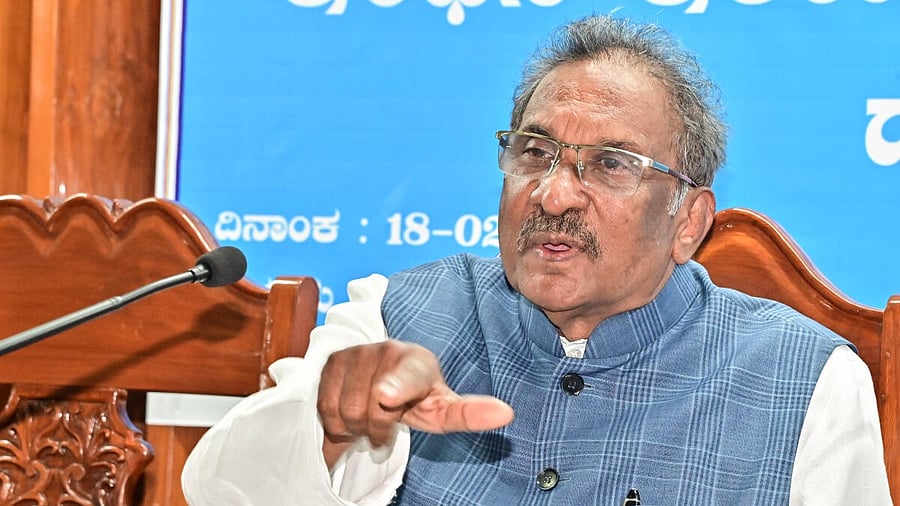
Karnataka's Energy Minister K J George.
Credit: DH File Photo
Bengaluru: Karnataka's Energy Minister KJ George on Friday emphasised that there won’t be load shedding this summer but hinted that unforeseen developments can lead to short power cuts.
He was speaking about the state’s summer preparedness at the Bescom office in Bengaluru on Friday, after a meeting with the heads at the Energy Department.
"Over the past two months, Karnataka has experienced a significant increase in power consumption, leading to an unprecedented demand of 19,000 MW. However, there will be no load shedding, as the state is fully prepared to meet the rising demand during the upcoming summer months,” George said. “The surge in power consumption is also a positive indicator of broader economic recovery in the state," he added.
According to George, if at all there are any power disruptions, it would be due to local technical issues. He said farmers' agricultural pump sets will receive 7 hours of electricity, while industrial and household consumers will have a continuous 24-hour supply.
Gaurav Gupta, Additional Chief Secretary of the Energy Department, said, “Compared to last year, the electricity demand has significantly increased. On February 27 of last year, the demand was 16,214 MW, whereas on the same day this year, the demand was 17,874 MW. This demand has been adequately met. Similarly, steps have been taken to ensure that there will be no issues in supplying electricity in the same manner until the first week of June.”
Depending on demand, 100 to 1,275 MW will be obtained daily through exchange agreements, and 300 MW will be procured from Punjab. Electricity was also obtained from Uttar Pradesh on an exchange basis, totaling 700 MW. Additionally, 1,000 MW of electricity will be purchased daily until the first week of June to meet the power requirement, according to the minister.
Storage plants
George told reporters that the state is currently producing electricity beyond requirement. However, the state has no facility to store it. “To address storage issues, we have decided to take up storage projects, including a 2000 MW capacity at Sharavathy Pumped Storage Project, 1600 MW at Varahi pumped storage project, 1000 MW at Pavagada, and a 2000 MW battery storage project at Ryapte in Tumakuru,” George said. “These initiatives will ensure the state does not face any electricity shortages," he added.
Measures to meet power demand through link lines
The energy minister revealed that in several areas electricity is available in excess, causing overload. The department is planning to develop a link system to address this.
“This system transfers electricity from underloaded substations to those experiencing overload, thereby balancing the power distribution. The establishment of link lines has already been completed in some areas,” George said.
The department is also planning to establish 100 new substations in the current financial year to deal with issues popping up during transmission and distribution. The problem is believed to be addressed within the next two years.